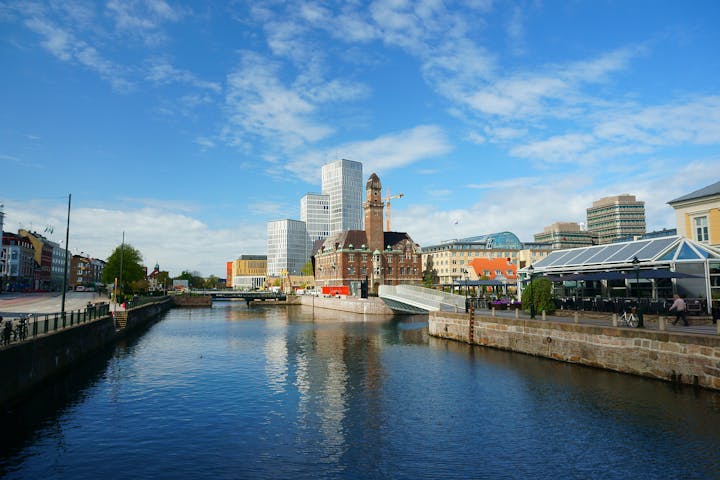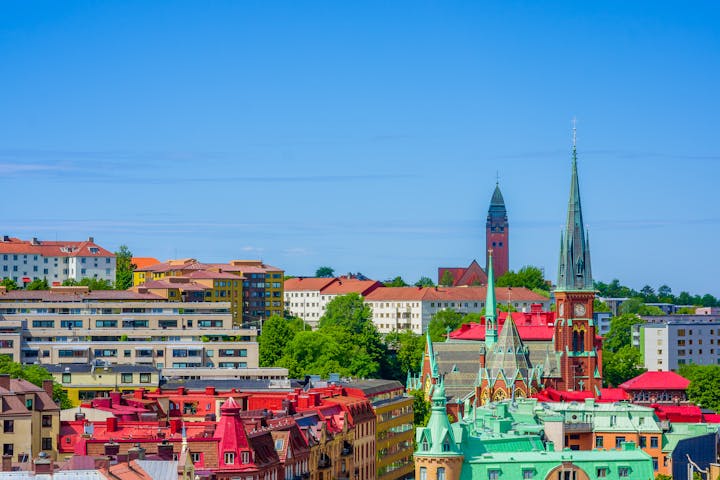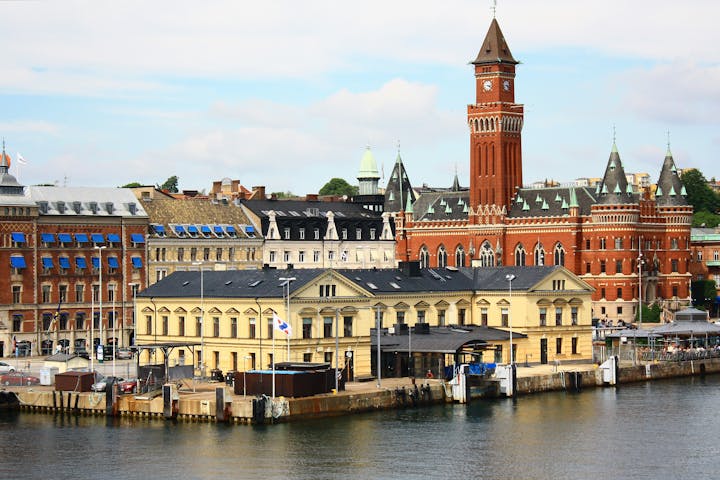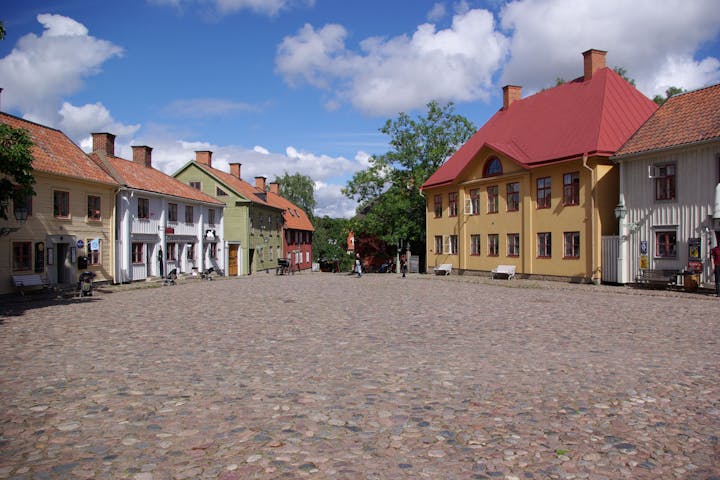- Stockholm to Fårbo buses
Previously seen journeys
| Operated by | Vehicle type | Departure time | Departure location | Trip duration | Arrival time | Arrival location | Recommended | Price and booking link |
|---|---|---|---|---|---|---|---|---|
 | Bus | Liljeholmen | Fårbo | No tags | ||||
 | Bus | Torsgatan | Fårbo | No tags | ||||
 | Bus | Sankt Eriksgatan | Fårbo | No tags | ||||
 | Bus | Haga Norra | Fårbo | No tags | ||||
 | Bus | Stockholm Cityterminalen | Fårbo | No tags |
Get from Stockholm to Fårbo
The journey takes about 7 hours 45 minutes, and with fares starting at just £22, it presents an excellent value for a comfortable ride.
Compare bus companies
Based on 11471 reviews, the company was rated 3.5 stars on Busbud. Travellers were especially satisfied with the ticket access and the staff but often complained with the Wi-Fi. FlixBus ticket prices on this trip start at £22
Frequently asked questions about travelling by bus from Stockholm to Fårbo
Please note that timetables, routes, or operator details shown here may be updated or vary at the time of your journey.
How much is the bus ticket from Stockholm to Fårbo?
The cheapest coach tickets from Stockholm to Fårbo start from £22. The average price for this route is around £28. Busbud recommends that you book your tickets in advance for a better chance to get the lowest possible price.
How long is the bus journey from Stockholm to Fårbo?
The average bus journey time from Stockholm to Fårbo is 7h 45m, covering a distance of 146 miles. The fastest bus can take you there in 4h 50m and is operated by FlixBus.
Which bus companies service the Stockholm to Fårbo route?
Several major bus companies operate on this route with 19 buses available per day.
What is the earliest and latest departure time for the bus from Stockholm to Fårbo?
The earliest bus departs from Stockholm to Fårbo at 06:50. And the latest bus departs at 17:50.
What are the CO₂ emissions for the bus trip from Stockholm to Fårbo?
A bus journey from Stockholm to Fårbo produces an estimated 6 kg of CO₂, making it a highly eco-friendly choice and a mode of travel recommended by Busbud.





